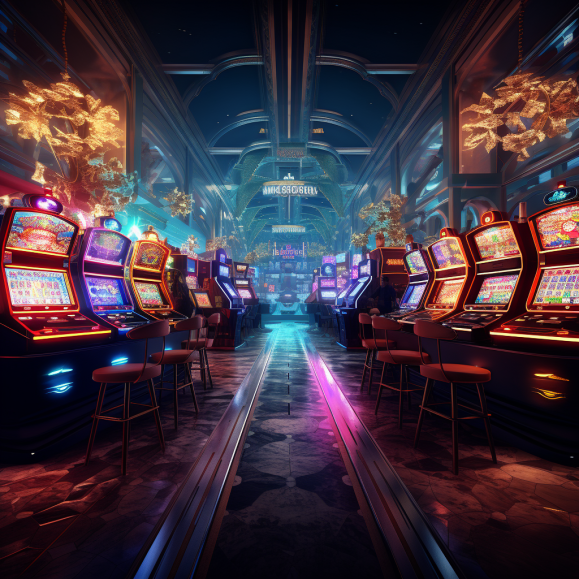The Allure of Atmosphere: Stepping into the Physical Casino
Nothing quite compares to the electric ambiance of a traditional casino. The distant chime of slot machines, the soft murmur of crowd conversations, the tactile sensation of chips between your fingers.
1. Sensory Engagement: Traditional casinos are not just about the games. They engage all your senses, from the dimmed lights reflecting off golden interiors, the melodies of winning, to the particular scent often infused in the air.
2. Human Interaction: Beyond games, casinos offer a level of human connection. The camaraderie among players, the chats with dealers, and the occasional cheer or shared sigh of disappointment form an integral part of the experience.
3. The Full Package: Most grand casinos are more than gambling hubs. They’re entertainment epicentres, offering shows, fine dining, and other luxuries. The game is just one facet of the larger gem.
The Digital Realm: Convenience at the Fingertips
Online games, on the other hand, offer a different kind of charm. It’s the era of digitalization, and online casinos aptly encapsulate this transformation.
1. Unparalleled Accessibility: The most significant boon of digital platforms is their accessibility. Anytime, anywhere, a potential game is just a click away, obliterating geographical and time boundaries.
2. Vast Game Libraries: Digital platforms aren’t limited by physical space. This means an extensive range of games, often with varying themes, features, and betting limits, all housed under one digital roof.
3. Innovative Features: Online platforms, being software-driven, can introduce innovative features swiftly. Be it new bonus rounds in slots or interactive game formats, digital games continually evolve.
Points of Divergence
1. Tangibility vs. Virtuality: While physical casinos offer tactile sensations – the weight of a chip or the texture of a card, digital games are immersive in a visual-audio way, often enriched with graphics and sound effects.
2. Speed of Play: Digital games, especially slots, can be played much faster. There’s no waiting for dealers or other players. However, this swift pace might also lead to quicker losses or wins.
3. Social Aspects: Traditional casinos have always been social hubs. Digital games, though, are striving to mimic this with live dealers and chat functions. Yet, they still fall slightly short of the real-world camaraderie.
Both realms, despite their differences, aim for the same goal – to provide an engaging gaming experience. Whether it’s through the grandeur of a casino’s architecture or the intricacies of a digital game’s design, the end game remains entertainment.
1. Security and Fairness: Both platforms are bound by stringent regulations to ensure game fairness. While physical casinos have surveillance and strict dealer protocols, digital platforms rely on RNG (Random Number Generators) and regular audits.
2. Reward Systems: Both have their own set of rewards. Physical casinos might offer complimentary drinks, hotel stays, or meals. Online platforms provide bonuses, free spins, and loyalty points.
A Symphony of Old and New
The debate between digital and physical isn’t about superiority but about preference. Some might yearn for the glamour and sensory appeal of traditional casinos, while others might prioritize convenience and variety that digital platforms offer. As the world of gambling continues to evolve, one truth becomes evident: there’s room for both. They don’t compete; they complement, each enriching the world of gambling in its own unique hue.

